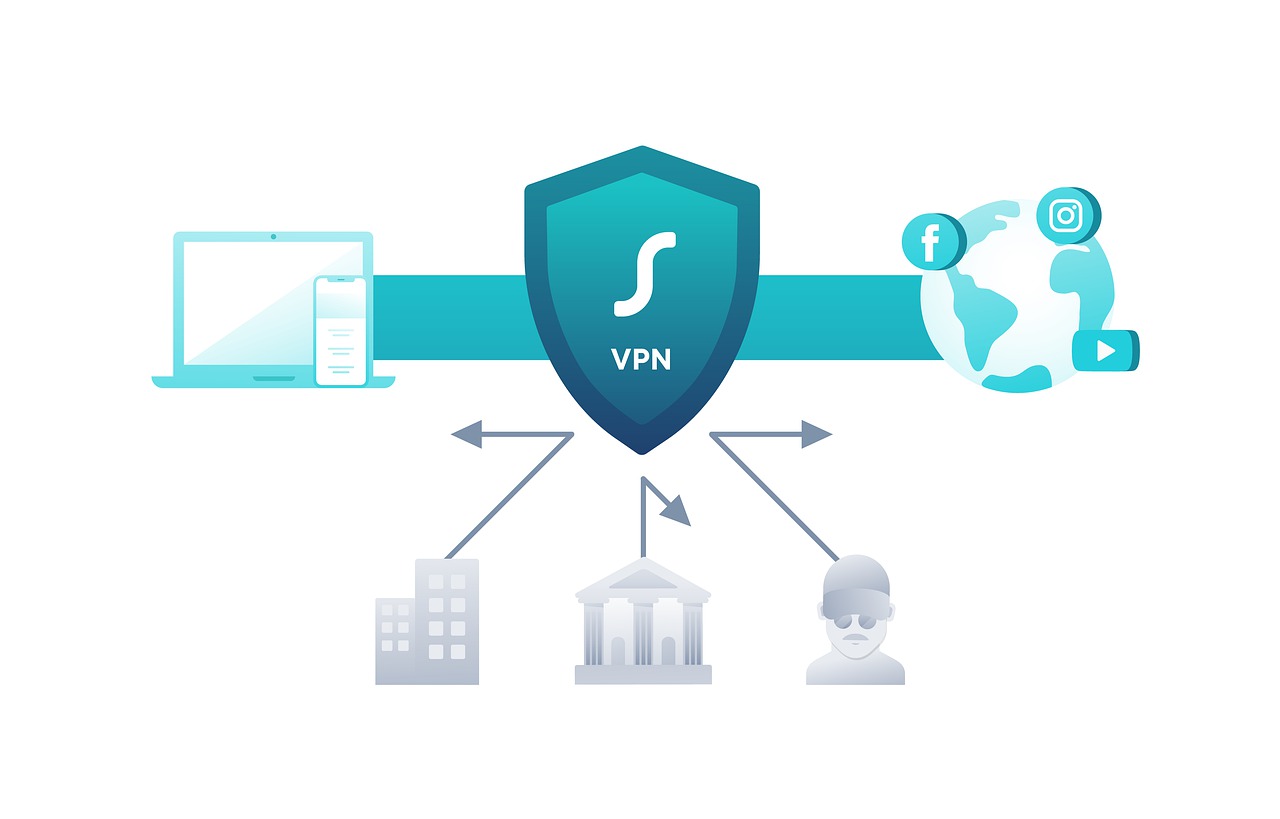In the digital age, our lives are increasingly connected to the Internet. From social media sharing to online banking transactions, our personal information and sensitive data are transmitted over the web, which also puts us at risk of privacy breaches and cyber threats. In this context, Virtual Private Networks (VPN) have become a key tool to protect our privacy and enhance online security. In this article, we will explore the importance of a VPN and how it can provide you with protection.

I. What is a VPN?
VPN stands for Virtual Private Network and creates a secure connection by establishing an encrypted channel between your device and a remote server. This means that your internet traffic is encrypted, making it difficult for hackers or other miscreants to steal it. At the same time, a VPN protects your privacy by hiding your real IP address, making it appear as if you are surfing the Internet from the location of the server you are connecting to.
1. Protect data on public Wi-Fi
Public Wi-Fi networks are everywhere - in cafes, hotels, airports, etc. - but they aren't always secure. These networks often don't have enough encryption protection, making it possible for hackers to steal your login credentials, personal information and even bank accounts. Using a VPN encrypts your data, and your information will be more secure even if you connect to an unsecured public Wi-Fi network.
2. Bypass geo-restrictions and protect privacy
Some countries or regions may impose geo-restrictions on specific content, websites or services. By connecting to a VPN server located in another region, you can bypass these restrictions and gain wider access. In addition, since a VPN hides your real IP address, your online activity becomes more private and less likely to be tracked by advertisers and trackers.
3. Prevent tracking by ISP and advertisers
Your Internet Service Provider (ISP) may track your online activities, as well as your interests and behavior online. This information may be used to place advertisements or even sold to third parties. Using a VPN protects your privacy by encrypting your data and preventing ISP and advertisers from tracking your online activities.
4. Online Privacy and Anonymous Browsing
Privacy is always a concern, and a VPN can help you enhance your online privacy. By hiding your real IP address, a VPN allows you to be more anonymous on the web. This is especially important for users who want to protect themselves from unwanted attention.
5. Protecting data while working remotely
More and more people are working remotely, and security is especially important when connecting to your company's network. a VPN encrypts your data as it travels, ensuring that your company's data can't be accessed by hackers while it's in transit. This is vital to maintaining the confidentiality of your company's data.
6. Avoid blocking and censorship
In some countries, governments may impose internet blocking and censorship, restricting citizens' access to information and freedom of speech. Connecting to a VPN server located in another country can help you bypass these blockades and censorship and gain free access to information.
7. Protection from malicious attacks
Hackers and malicious elements may try to steal your personal information, financial data or sensitive files through cyber-attacks. the encryption feature of a VPN can make your connection more secure and reduce the risk of cyber-attacks.
Second, choose the right VPN service
To ensure that the VPN works at its best, you need to choose a reliable VPN service provider. You should consider factors such as the service provider's privacy policy, security protocols, server location, speed and reliability. You should also pay attention to whether the VPN offers features such as unlimited bandwidth, multi-device connectivity and 24/7 customer support.
To summarize
Whether you're using a VPN for privacy, to bypass geo-restrictions, or to stay safe on an unsecured network, a VPN can be a very useful tool. By encrypting your data transfers and hiding your real IP address, a VPN can provide you with a safer, more private online experience. In today's Internet environment, which is full of threats and hidden dangers, using a VPN is a necessary measure to protect your privacy and security. Choose a VPN that suits your needs and always stay safe online.
 Email
Email